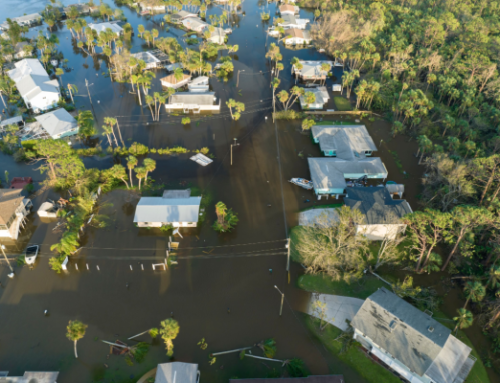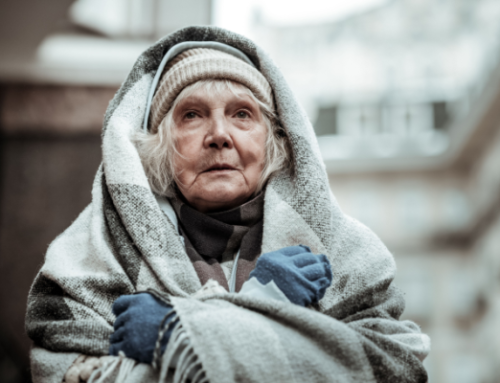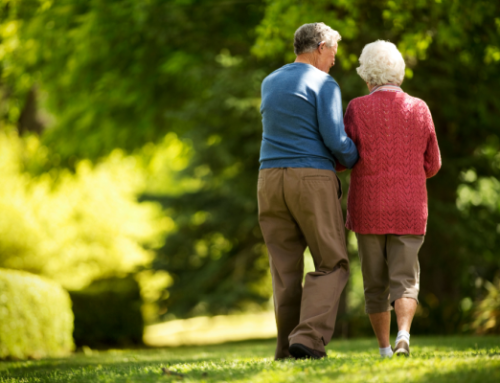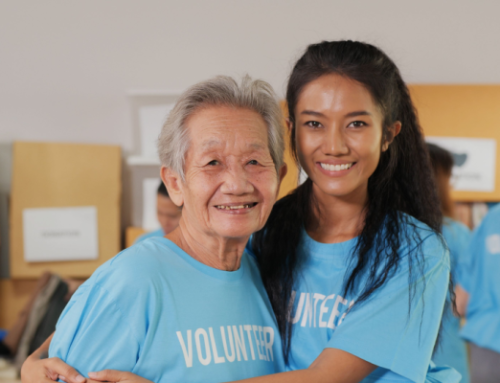We’ve all seen the images of loved ones separated by plexiglass (or using FaceTime) as they experience life’s important moments. Whether it be celebrating a birthday, graduation, or a wedding, or mourning a loss, the pandemic has forced us all to rethink how we support one another…from a distance.
This issue is perhaps even more acutely felt by those who are acting as caregiver for an aging loved one. And while caregiver guilt is common during even the best of times, there is nothing that could have prepared most people for the many challenges and additional heartache created by this pandemic.
>> Related: Confronting Our Nation’s Ever-Growing Long-Term Care Crisis
Pandemic-related issues
The emotional toll on many seniors caused by shutdowns and quarantine restrictions has been significant — especially those who live by themselves. As a result, their family caregivers are likely feeling pushed to the max as they struggle to not only deal with pandemic-related issues in their own life but also trying to help their loved one navigate this strange new world.
Visits to the grocery store now require careful planning, a mask, and hand sanitizer. Hired helpers like housekeepers or in-home nursing aides now present potential health threats. Even a trip to the doctor’s office can produce anxiety in the most cool-headed among us. All of this presents additional work, stress, and/or guilt for family caregivers.
Add to the mix that group social opportunities, and the support systems they naturally create, have come to a halt for many seniors. The beloved book club, bowling league, or Bible study group have all been put on hold. And now, even family gatherings for the holidays are in jeopardy. It is shaping up to be a lonely fall and winter for many people.
The additional feelings of guilt this creates for family caregivers, especially long-distance caregivers, can’t be understated. The stress they already shoulder, which can lead to anger and even resentment, has only been amplified by all of these new pandemic-related factors.
>> Related: Is Aging in Place the Better Option After the COVID-19 Pandemic?
Origins of caregiver guilt
The root of much of the guilt experienced by family caregivers has to do with self-criticism and feelings of inadequacy. Guilt commonly rears its head when there’s a discrepancy between the choices the ideal you would have made, and the choices you actually make. You feel like you have fallen short…disappointed others…should have done more.
But the reality is, you must put on your own oxygen mask before trying to help others (as the flight attendants always remind us). Caregivers have to take care of their own basic needs before they will have the energy or emotional bandwidth to help their aging loved one.
>> Related: The Challenge of Long-Distance Caregiving
Alleviating caregiver guilt
So, what can family caregivers do to help address these all too common feelings of guilt and inadequacy? Barry Jacobs, a clinical psychologist, family therapist and healthcare consultant, offers the following tips.
Don’t aim for guilt-free caregiving.
To some degree, humans are naturally predisposed to feelings of guilt. The sense that we should be doing more to help our loved ones is probably rooted in primitive survival. But these primal instincts mustn’t run amok, causing us to constantly beat ourselves up. “That discrepancy between what you think you should do and what you’re willing and able to do may always cause some guilt,” Jacobs says. “Let’s accept that as a given, then, and work on tempering the feeling.”
Give up the fantasy of rescuing others.
It can be agonizing to see a loved one suffer, whether it be from emotional anguish or physical pain. It is natural to want to do everything we can to alleviate or eliminate that suffering, but unfortunately, that simply isn’t always possible, as the pandemic has shown us. “We owe our loved ones good effort, but perfect outcomes can be impossible,” notes Jacobs. “Hold yourself to realistic goals, not fantastic ones.”
Maintain balance.
Family caregivers often wear many hats. They have responsibilities to children, partners, coworkers, and more, in addition to their care recipient. But they must also remember to replenish their own tank if they want to have the energy needed to offer care to their loved one. Jacobs explains: “While taking those breaks from caregiving may bring up feelings of guilt, they’re necessary for our own emotional health.” Remember as well: It’s okay to ask for help!
Tolerate ambivalence.
It’s okay to feel some ambivalence about your caregiving responsibilities. You are a human, and your feelings are valid. These emotions do not negate your love for your care recipient. “Having negative feelings is part of normal family life,” Jacobs reminds us. “In the years before old age and illness, our family members were probably sometimes irritable toward one another without so much self-condemnation. Caregiving doesn’t make us angels.”
Find other motivations.
It’s entirely normal to feel some anger and resentment about your caregiving responsibilities, as well. It isn’t fair that your loved one is sick. It can be frustrating to have even more tasks added to your already-full plate as a result. But when guilt makes us act like a martyr, doing something we don’t really want to do, it helps no one and only increases feelings of bitterness. “It is far better for us to act on more noble impulses — wanting to provide care because it is important to us or pleases us,” Jacobs says.
>> Related: How Technology Is Reducing Long-Distance Caregiver Burden
All feelings are valid
Family caregiving is a noble and satisfying endeavor, but it also can be an incredibly stressful and guilt-producing task. It is so important for caregivers to be kind to themselves, acknowledging and validating any and all feelings they may encounter as a result of their caregiving responsibilities. By giving yourself permission to experience those feelings — and understanding that your feelings are separate from your actions — your guilt will ebb.
If you are a family caregiver who is struggling with feelings of guilt, it can help to talk with a friend, another loved one, or a trained counselor, who can provide guidance on confronting those emotions. These are challenging times by nearly everyone’s standards, but when you care for yourself, you increase your capacity to be your best self and to provide your loved one with the quality of care you want them to have.

FREE Detailed Profile Reports on CCRCs/Life Plan Communities
Search Communities






